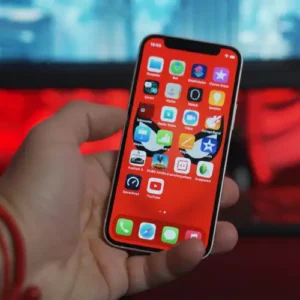In social media marketing, understanding and adapting to the preferences and behaviors of Generation Z has become paramount. As the first generation to grow up entirely in the digital age, Gen Z possesses unique characteristics and expectations that shape their interactions with brands on social platforms. This comprehensive exploration delves into how brands navigate the Gen Z frontier, reshaping their social media strategies to resonate with this influential demographic.
Understanding Generation Z
Before delving into how brands are adapting their strategies, it’s crucial to understand who Generation Z is and what sets them apart. Born roughly between the mid-1990s and early 2010s, Gen Z is characterized by their digital fluency, multiculturalism, and desire for authenticity. They are true digital natives, having grown up in a world where smartphones, social media, and instant connectivity are the norm. Unlike previous generations, Gen Z values experiences over material possessions, seeks authenticity in their interactions with brands, and possesses a keen sense of social justice.

Adapting Social Media Strategies
Given these unique characteristics, brands must rethink their social media strategies to effectively engage Gen Z. Here are several key ways in which brands are adapting:
- Authenticity Over Perfection:
Gen Z values authenticity and transparency above all else. Brands that showcase their human side, share behind-the-scenes content, and openly address issues resonate more deeply with this audience. Social media posts that feel overly polished or staged are often met with skepticism. - Visual and Interactive Content:
Gen Z is highly visual and gravitates towards interactive content formats such as videos, GIFs, memes, and interactive polls. Brands that leverage visual storytelling and embrace multimedia formats are more likely to capture and maintain Gen Z’s attention on social media. - Purpose-Driven Messaging:
Gen Z is passionate about social and environmental issues and expects brands to share their values. Brands that take a stand on social issues, support causes aligned with Gen Z’s values, and demonstrate a commitment to sustainability are viewed more favorably by this demographic. - Personalized Experiences:
Gen Z craves personalized experiences and expects brands to tailor their content and messaging to individual preferences. Brands that use data-driven insights to deliver personalized recommendations, offers, and experiences are more likely to build meaningful connections with Gen Z consumers. - Embracing New Platforms and Trends:
Gen Z is known for their early adoption of new social media platforms and trends. Brands that stay ahead of the curve, experiment with emerging platforms like TikTok, Snapchat, and Twitch, and adapt their content to fit the unique characteristics of each platform are better positioned to engage Gen Z.

Case Studies and Examples
To illustrate these principles in action, let’s explore a few case studies of brands that have successfully adapted their social media strategies to cater to Generation Z:
- Glossier:
Beauty brand Glossier has built a devoted following among Gen Z by prioritizing authenticity, diversity, and inclusivity in its social media marketing. Glossier’s Instagram feed features user-generated content, candid behind-the-scenes glimpses, and inclusive messaging that resonates with Gen Z’s values. - Chipotle:
Fast-casual chain Chipotle has embraced TikTok as a platform to engage Gen Z consumers with creative and entertaining content. Chipotle’s TikTok account features viral challenges, user-generated content, and collaborations with popular creators, effectively reaching a younger audience in an authentic and relatable way. - Adidas:
Sportswear giant Adidas has leveraged personalized messaging and interactive experiences to connect with Gen Z consumers on social media. Through initiatives like the Adidas Creator Club, which offers exclusive perks and rewards to members, Adidas has fostered a sense of community and loyalty among Gen Z customers.
Conclusion:
In an era defined by rapid technological advancements and shifting consumer preferences, brands must continually evolve their social media strategies to cater to Generation Z. By prioritizing authenticity, visual and interactive content, purpose-driven messaging, personalized experiences, and embracing new platforms and trends, brands can effectively engage Gen Z consumers and build lasting relationships that drive loyalty and advocacy in the digital age.










